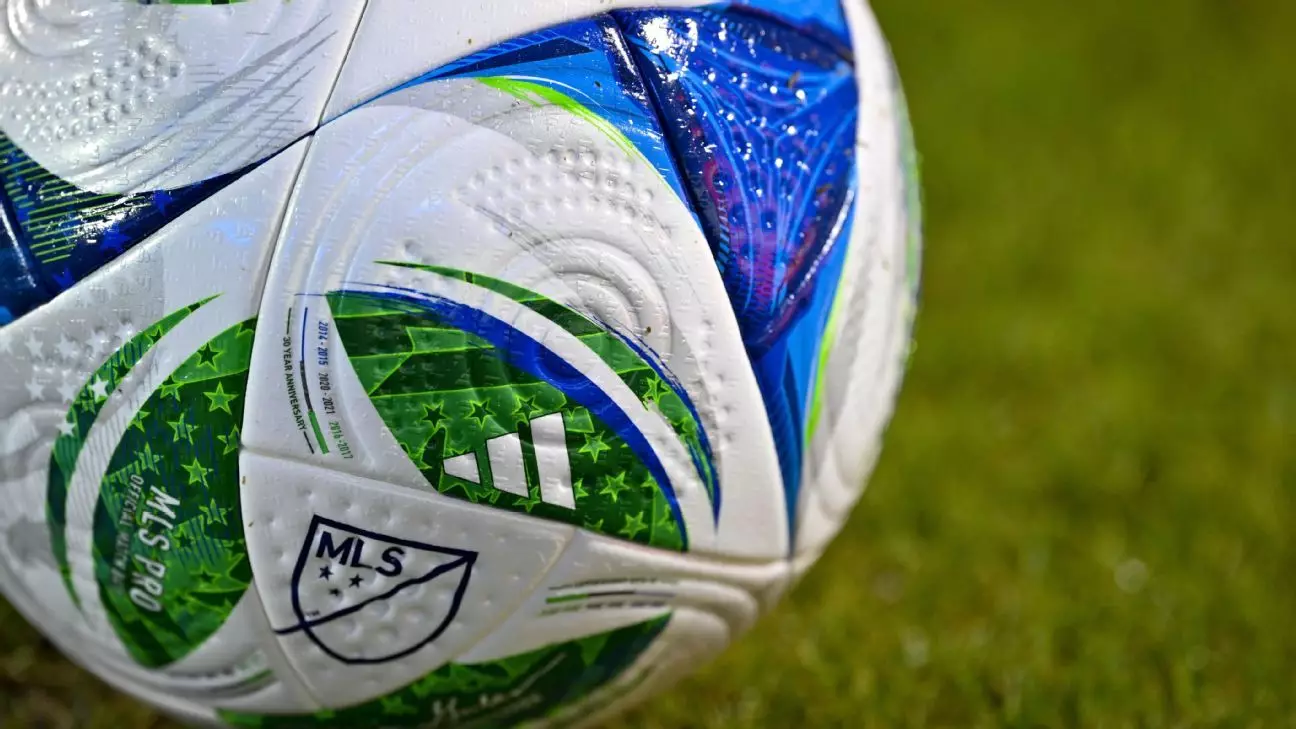The ongoing debates between Major League Soccer (MLS) and the MLS Players Association (MLSPA) spotlight a serious disconnect between the league’s administration and its players. At the heart of this issue is the distribution of prize money from the FIFA Club World Cup, a subject that has sparked significant protests and demands from players across the league. The notion of fair financial compensation is not merely a negotiation point; it embodies the players’ security, their dignity, and ultimately, their value within the professional sports arena.
Seattle Sounders FC took the bold step of protesting against what they perceived as a lack of respect for their contributions, donning shirts that ominously proclaimed “Club World Cash Grab” and “Fair Share Now.” This act of defiance was not just a cry for equity; it was a symbol of solidarity among players who collectively seek recognition for their effort and sacrifices. Their stance resonates beyond the field, creating ripples of conversation about the broader implications of financial fairness in professional sports.
Understanding the Disparities
At the core of the disagreement lies the MLS’s proposed terms regarding compensation. Historically, the collective bargaining agreement (CBA) mandated that players receive 50% of any prize money linked to external tournaments, capped at $1 million. However, the MLS’s latest proposal appears to fall short of addressing the realities of what the players believe they deserve. The proposed 20% of performance-related payments for wins and draws, in addition to a fixed $1 million participation fee, seems inadequate when placed against the backdrop of the league’s larger financial landscape—specifically, the staggering $28,650,000 that FIFA is rewarding MLS.
The MLSPA’s assertion that this offer belittles the players’ contributions cannot go unnoticed. By suggesting back-end compensation that remains below the international norms, MLS introduces a contentious atmosphere where players are left feeling undervalued. This disconnect not only damages morale but also poses a risk to the credibility of the league itself. In professional sports, where stars are made and legacies are built, the players’ economic welfare must be prioritized to foster an atmosphere of respect and mutual benefit.
The Stakes of Negotiation
The heated negotiations are further complicated by the restrictions previously agreed upon in the CBA, which disallows players from striking over issues within this scope. Yet, players harbor the right to take collective actions under federal labor law. The intricacies of these labor agreements underscore the vulnerabilities players face in bargaining for their rights. When players feel coerced into accepting subpar proposals, it negates the progress that a union like the MLSPA is meant to signify—the empowerment and advocacy for player rights.
Players from LAFC, Inter Miami CF, and the Seattle Sounders are gearing up for the Club World Cup, yet their focus is being diverted by this looming dispute. The MLSPA views the league’s current stance as “retaliatory,” claiming the MLS’s approach sends a demoralizing message about player worth. A divided focus during crucial tournaments can severely undermine performance, thus affecting not only the players but the league’s reputation and viewer engagement as well.
Players’ Voices and Future Implications
The MLSPA’s declaration of unity in the face of MLS’s proposals is commendable. The players’ collective determination to address compensation and express dissatisfaction could redefine their relationship with the league. By standing firm, they send a significant message about the need for equitable treatment and consultation in decision-making processes that affect them directly. The current environment generates an opportunity for growth—not just for the players, but for MLS itself, as embracing transparency and fairness could elevate its stature in the sports mainstream.
In an era where public sentiment increasingly favors worker rights and equity, the actions taken by the players are reflective of larger societal trends. They are not just athletes seeking compensation; they are advocates positioning themselves as disruptors of a narrative that often favors corporate interests over individual contributions. As negotiations continue to unfold, it will be fascinating to watch how this struggle for fair compensation shapes the future of professional soccer in America. The players’ fight for fairness in compensation does not merely stand as a solitary issue within the MLS—it reverberates throughout professional sports, demanding recognition and respect for the labor that drives the game.

